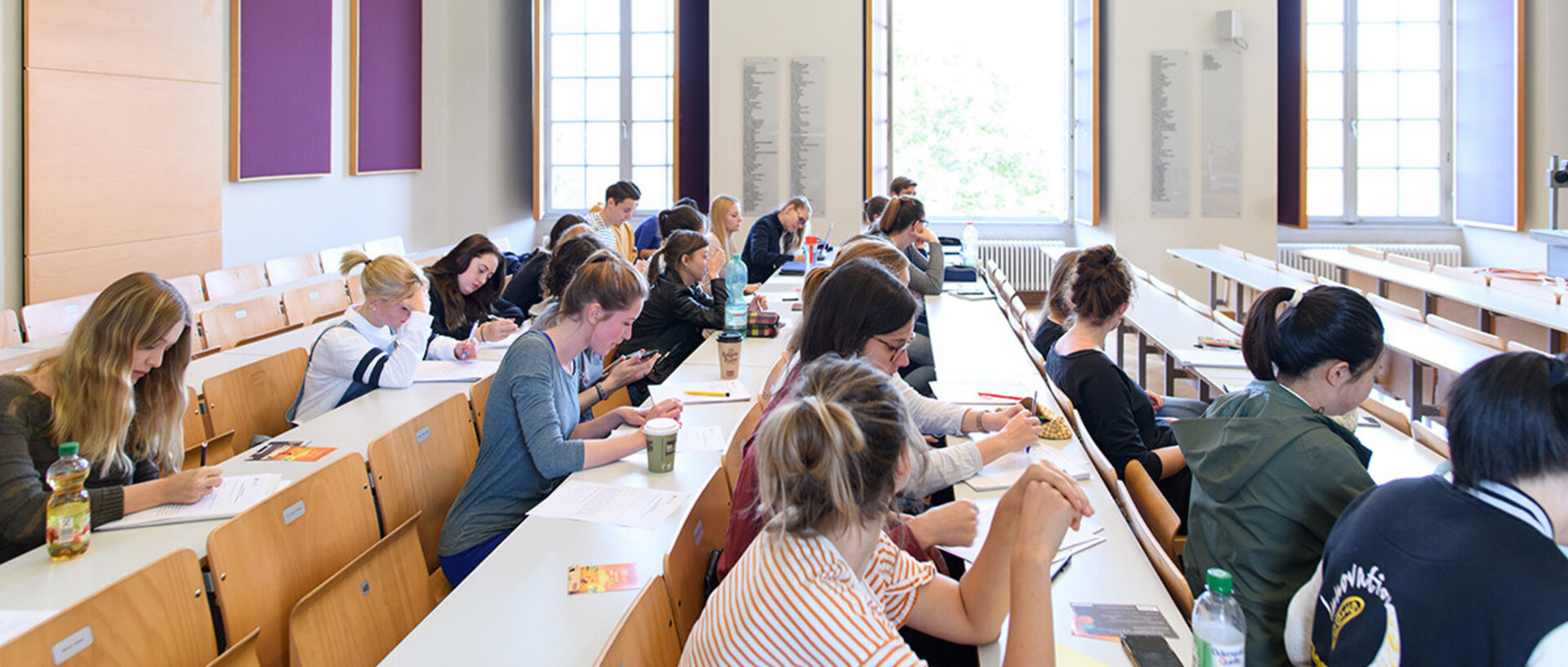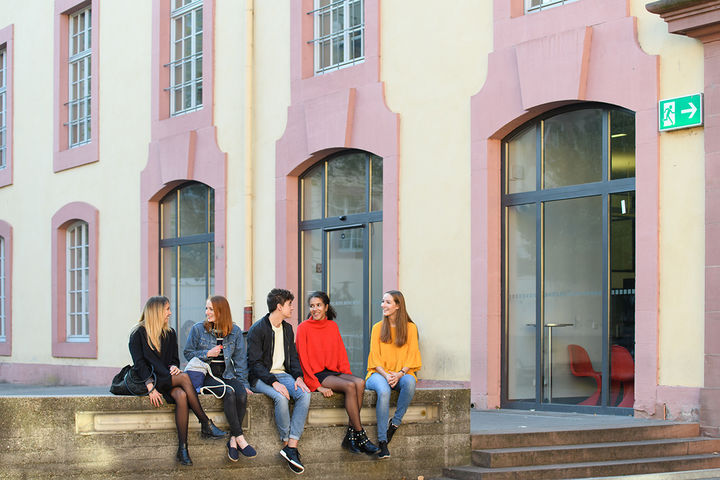In the bachelor’s program in Media and Communication Studies you will acquire broad theoretical and methodological knowledge which will allow you to analyze communication processes and media in a scientifically sound manner. The program focuses on the peculiarities of products related to mass media and their impact in relation to social systems and social change.
The program is completed by an Interdisciplinary Cultural Studies module, which casts light on the concept of culture by considering the topic from different angles that are characteristic for the individual departments. You are also obliged to take a minor (accounting for around 30 of the 180 ECTS credits).
Within the context of the practicale module, an early practical orientation and access to interesting fields of work are promoted in collaboration with experts from areas such as film, television, print, social media, PR, journalism and crisis communication. During your six-week compulsory internship, you can put acquired skills into practice.
Examination regulations
Program handbook
Module catalog
Module catalog
Here, you will find an exact description of the contents respecting each course of your program and the skills you will have acquired once you have completed the course. This information is important if you are going to take courses at another university (e.g. during a semester abroad) or have taken courses at another university in the past (preparatory studies) and are planning on having the ECTS credits already obtained recognized for your program of study. Please consider that there may be different versions of the module catalogs for each program of study depending on the start of the program (due to changes in the examination regulations).
- For more information please refer to the module catalog
Exemplary degree plan
This degree plan only serves as an example of how you can successfully complete your program of study in six semesters. You can decide on the order in which you would like to take the courses and examinations of the program, but you should be mindful of taking the examinations that are relevant for the orientation examination within the first three semesters. Please keep in mind that some courses are only offered either in the fall semester or in the spring semester (for further information click on Portal²).
Proof of language proficiency (admission requirements)
Period of study abroad
Studying abroad always helps you grow personally and professionally. And there is no better place to learn a foreign language than the country where the language is spoken. Don’t miss this great opportunity! Ideally you should plan your semester abroad for the fifth semester; however, a stay abroad during the spring semester (fourth or sixth semester) is also possible. We will help you plan your stay abroad and will be happy to advise you – whether you plan a semester abroad or an internship abroad.
Internship
The program includes a mandatory internship of six weeks (full-time 35 hours/
week or part time with a total of at least 210 hours). We recommend that you also complete a longer internship in a potential professional field during your studies – either in Germany or abroad. We are happy to help you find a suitable internship. Final module
After your graduation
Graduates of the bachelor’s program in Media and Communication Studies have the necessary qualification to start a professional career in the media industry. This includes careers in the areas of culture, radio, film and television, public relations, social media, (business) journalism, editing, publishing or politics. Ideally, you will gain first work experience during your program of study that helps you make the right career choice after graduation. We are happy to help you find a suitable internship or assist you in starting your career.
Click here to see interesting internship and job offersA bachelor’s degree in Media and Communication Studies also qualifies you for a master’s program in Media and Communication Studies or for a similar program.
View the available programs




